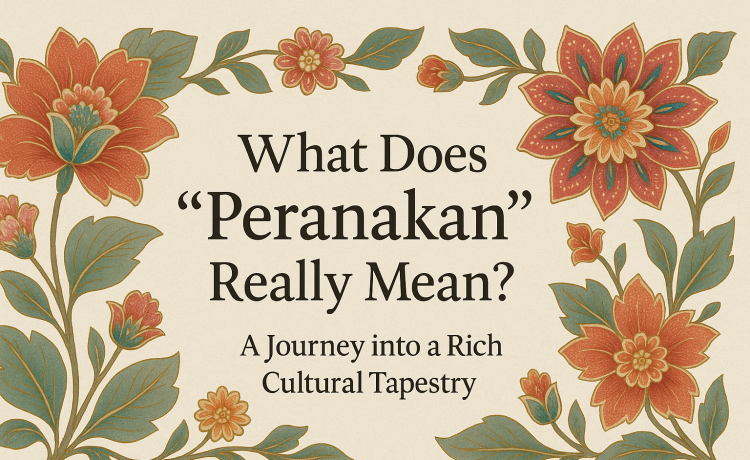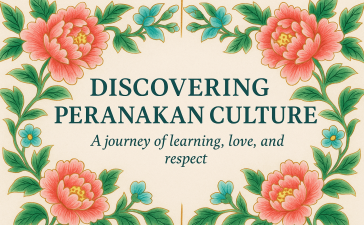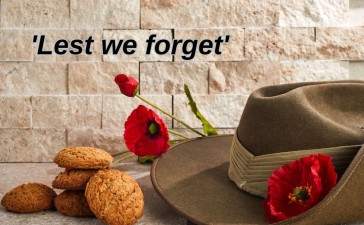“To know where you’re going, you must understand where you come from.”
As someone of Chinese heritage born in Vietnam, I’ve always been fascinated by the cultural crossroads of Southeast Asia. My journey into learning about the Peranakan community started with curiosity — and has grown into deep admiration.
🌏 So, what is “Peranakan”?
The word Peranakan comes from the Malay/Indonesian word meaning “locally born” or “descendant.” It refers to a diverse group of people whose ancestors migrated to Southeast Asia — mostly from China, India, or the Middle East — and intermarried with local communities over centuries.
It’s not one single culture, but rather a beautiful hybrid.
👥 Types of Peranakan Communities
While the most well-known are the Baba-Nyonya (Chinese Peranakan), there are others too:
-
Baba-Nyonya (Chinese-Malay descent): Found mainly in Malaysia, Singapore, and parts of Indonesia.
-
Jawi Peranakan (Indian-Muslim + Malay): Predominantly in Singapore.
-
Chitty Peranakan (South Indian Hindu + Malay): Mainly in Melaka.
-
Peranakan Arab (Hadhrami Arab + Malay): A lesser-known group with a strong influence in Indonesian ports like Surabaya and Semarang.
Each has its own food, fashion, rituals, and dialects — yet all share a unique blend of heritage and hybridity.
🧭 A Cultural Bridge, Not a Boundary
The Peranakan story is one of connection — between traders and locals, past and present, tradition and innovation. As I explore this world, I’ve come to realise it reflects the story of many Asian diasporas, including my own.
We are not outsiders looking in — we are part of the same regional mosaic that shaped this culture.
📚 Why This Matters
In a world where cultures can be misunderstood or flattened into stereotypes, learning about Peranakan heritage is a way to celebrate complexity. It’s about respect, preservation, and shared identity.
This is the beginning of my journey — and I invite you to walk with me through food, fashion, homes, language, and stories that have stood the test of time.
“Learning about a culture is not about becoming it,
but honouring its voice and story.”
— Vinh Van Lam, Cultural Learner & Creative Explorer
Next week, I’ll share a personal reflection on my own connection to Peranakan culture — how this journey first started for me as a child, and how it continues to shape my work and passion today.”





